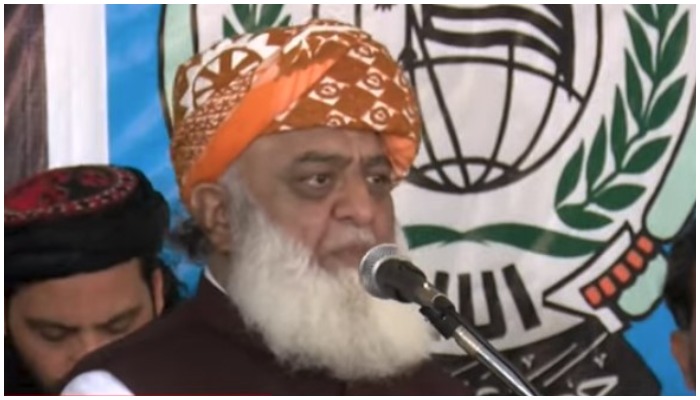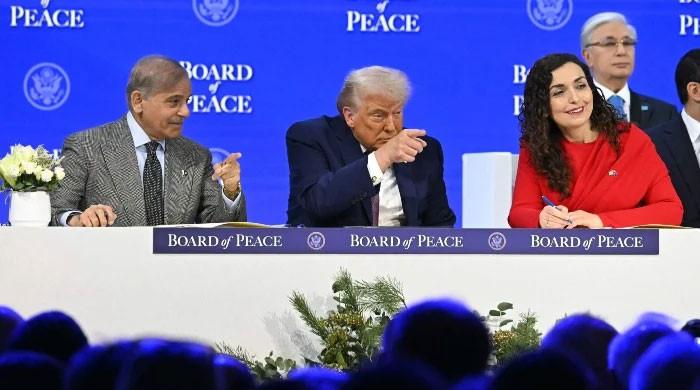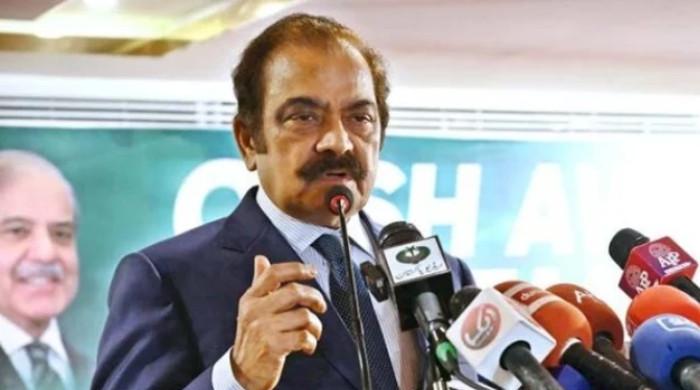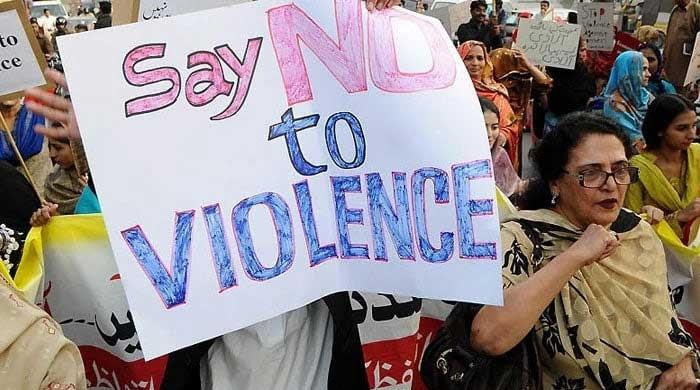'Disagreements within PDM are common, but alliance still stands united:' Fazl
"Resignations were never meant to be the last option during the March 16 meeting of the PDM," says Fazl
March 17, 2021

- Fazl clarifies disagreements regularly take place within the Pakistan Democratic Movement (PDM), but the alliance still stands united.
- Resignations were never meant to be the last option during the March 16 meeting of the PDM, says JUI-F chief
- PPP has been given time to deliberate upon its decision of resigning from the Parliament before the long march, he says
PESHAWAR: The chief of the Jamiat Ulema-e Islam Pakistan (JUI-F) Maulana Fazlur Rehman on Wednesday clarified that disagreements regularly take place within the Pakistan Democratic Movement (PDM), but the alliance still stands united.
The PDM chief was addressing a gathering in Peshawar, during which he said that during yesterday's meeting, nine parties of the PDM were in favour of submitting resignations to the Parliament.
"If resignations are to be submitted, half of the Parliament would be empty. That would call for reelection," he said.
Fazl said the PDM had suggested the option of resigning from the Parliament during yesterday's (March 16) meeting and nine out of 10 parties agreed, except for the PPP.
"Resignations were never meant to be the last option or the atom bomb," Fazl said. "We have given the PPP time to deliberate upon its decision and consult the Central Executive Committee (CEC) regarding the matter.
He also said that revealing the internal matters of the PDM which were discussed during the meeting is a "dishonest and treacherous" practice.
It should be recalled that the PDM has called off its long march, which was scheduled to take place on March 26 to oust the PTI-led government, due to PPP's hesitation regarding the submission of resignations to the Parliament.
'Country's laws not as per Quran, Sunnah despite passage of decades'
Fazl also shed light on the current justice system and laws of the country and said that despite more than 70 years since Pakistan came into being, the laws of the country could not be made in light of the Holy Quran and Sunnah.
He further said that Pakistan has institutions responsible for making laws in the country as well as courts that have a duty to ensure justice.
"Are Pakistani courts capable of ensuring justice?" he questioned.
Speaking about the Council of Islamic Ideology (CII) Fazl said that since its inception in 1973 to review laws [in the light of Qu'ran and Sunnah], not a single law was formulated based on its suggestions.
"The Parliament is constituted in a manner where the [teachings] of the Qu'ran and Sunnah are not given priority," he said.











